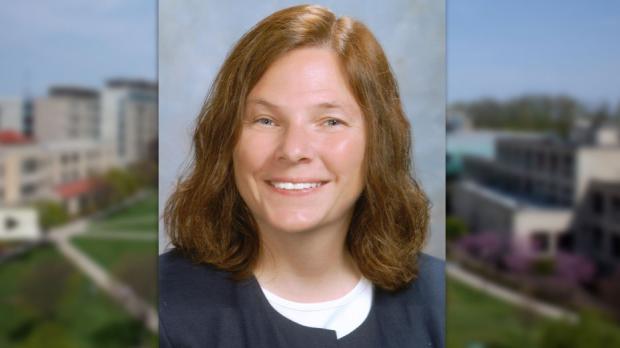Spotlight: Terri L. Mangione
Terri L. Mangione, PhD, is the vice president for student affairs at Canisius College. In this, her second stint at the 100-year old Jesuit institution, she is responsible for campus ministry, athletics and athletic facilities operations, public safety, events management, residence life, student counseling, student health and student academic support services, campus programming, orientation, leadership development, international student services, the ALANA (African American, Latino/a American, Asian American and Native American) Student Center and divisional assessment. Mangione is also an adjunct professor for the school’s College Student Personnel Master’s program. She holds a BA (applied clinical psychology), an MS (college student development), and a PhD (social foundations of higher education).
In lay terms, what is your job at Canisius?
I’m part of the president’s senior leadership team. As VP for student affairs, my responsibility is everything related to student life outside of the classroom for our 2,500 full-time undergraduate students and 1,200-1,300 grad students (full- and part-time). That includes the counseling center, the student health office and the 24/7/365 public safety department. The student engagement staff provides experiences for students, like concerts, athletic events, and professional/student organizations. We’re a Division I athletic program. The international office supports students from other countries (aside from Canada). And the student affairs division engages with students to ensure their positive out-of-classroom experiences.
How has your life prepared you for this?
When I started undergrad, I didn’t know this career existed. I was a first-generation college student. I saw that there were folks interested in working with students, and I got involved. I was an RA and worked in the student center.
At first I majored in nursing; I always wanted to be helpful. After a few years I decided that I preferred the college environment to the medical environment—it seemed like a comfortable and interesting place to serve students. My PhD is focused on the sociology of education.
What are the biggest opportunities for students?
At Canisius, we teach and promote Jesuit values; students can become life-long learners, and also practice their sense of justice and equality. They, of course, are focused on their career-driven majors; our students are also here because they want to be connected, to understand others’ experiences; to do well, and be good, kind and considerate. To think about issues of social justice for all.
Campus ministry is now part of student affairs—this is so that students can be more engaged locally, regionally and globally. It’s a program of service, with community days and ongoing projects, as well as immersion trips, to understand what life is like for others.
What are the challenges facing college students right now?
Students can be overwhelmed when facing a world that has become divisive. They are challenged by the economy. After they commit to undergrad and graduate school, they wonder if they’re going to be as successful as they want to be, as their parents were.
They are challenged by an uncertain future. This generation was very young when 9/11 occurred; the experiences that they’ve seen with the US, Iran, and Iraq are similar to those who grew up during Vietnam.
Do you see challenges facing girls and women in particular?
don’t think students see a difference in terms of their challenge or opportunities. They want to believe there is equity; that they can do what they want, but they see the statistics are that women earn less. We are seeing more women rising to the top academically, taking on leadership roles and responsibility, being as successful as male students.
What is your vision for Canisius and Buffalo? How do you see your role in it?
With our new strategic plan, I see Canisius being an economic driver for Western New York. We’re looking at being a more student- and justice-centered, innovative, creative, and efficient.
I grew up mostly in Western New York. No one ever went to downtown Buffalo. Now, the things that are going on there! You can bike around Canalside; enjoy the restaurants and businesses that are being developed in Larkin Square, and by the Pegula family at the HarborCenter (home for the Canisius men’s hockey team). The urban housing market is growing. We encourage our students to go experience the rebirth. All of this growth and development is important to Canisius. And I’m part of it—and part of a strong leadership team that has a vision for 2020 and beyond. We are collaborative and engaged, confident and comfortable with our future and connecting that to Buffalo’s resurgence. For the first time, as we recruit out-of-state students, we can say, “Buffalo is the hip, new, cool place for young people to be!”
Jana Eisenberg is a Buffalo-based writer and editor.

